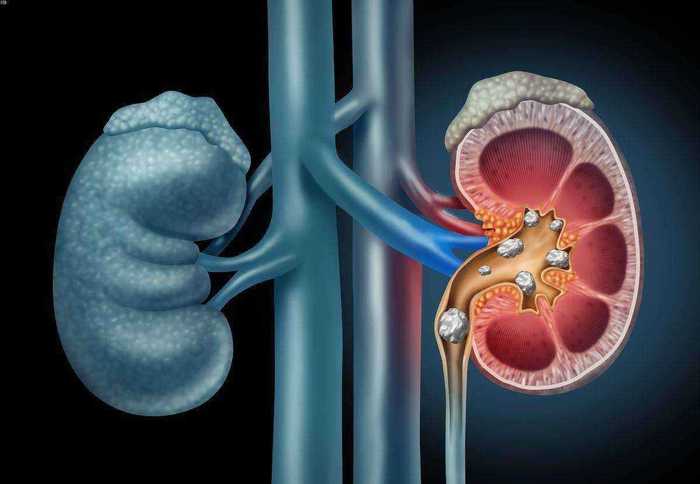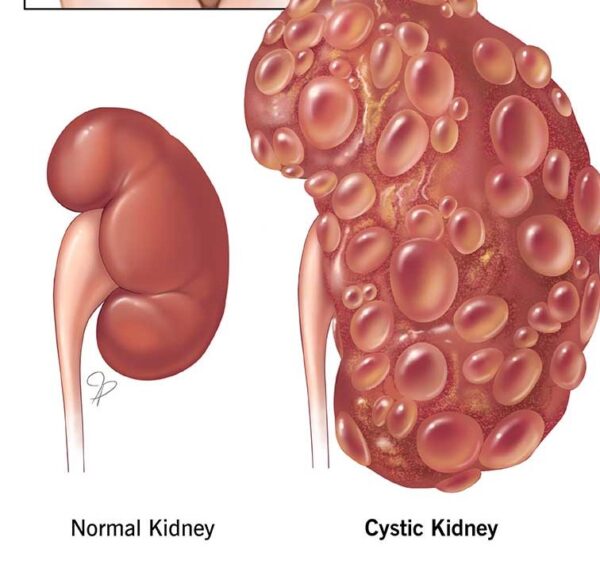Contents
- 1 symptoms of kidney disease stage: best vitamins for kidneys and liver: best at-home kidney test
- 2 Introduction
- 3 symptoms of kidney disease stage
- 4 best vitamins for kidneys and liver
- 5 best at-home kidney test
- 6 kidney disease diet and exercise
- 7 disorders of kidney Wikipedia
- 8 What are the symptoms of kidney disease?
- 9 What are the best vitamins for the kidneys and liver?
- 10 What is the best at-home kidney test?
- 11 Conclusion
symptoms of kidney disease stage: best vitamins for kidneys and liver: best at-home kidney test
Introduction
Welcome to our blog post on kidney health! In this article, we will explore the symptoms of kidney disease, discuss the best vitamins for the kidneys and liver, and highlight the benefits of at-home kidney tests. Taking care of your kidneys is crucial for overall well-being, as these vital organs play a key role in filtering waste from your blood.
Kidney disease affects millions of people worldwide and can lead to serious complications if left untreated. Recognizing the symptoms early on is essential for prompt medical intervention. Maintaining a healthy diet and exercise routine can help support optimal kidney function.
For supporting kidney and liver health, certain vitamins are beneficial. We will delve into these vitamins later in the article. We will explore an innovative way to monitor your kidney health from the comfort of your own home using at-home kidney tests.
Stay tuned for valuable insights into promoting healthy kidneys and optimizing overall wellness!
Symptoms of kidney disease stage: best vitamins for kidneys and liver: best at-home kidney test:- Welcome to our blog post on kidney health! Whether you’re concerned about the symptoms of kidney disease, looking for ways to support your kidneys and liver with the best vitamins, or interested in an at-home kidney test, you’ve come to the right place. Kidney health is vital for overall well-being, and we are here to provide you with valuable information and insights. So let’s dive in and explore everything you need to know about taking care of your kidneys!
symptoms of kidney disease stage
Symptoms of a kidney can vary depending on the stage and severity. In the early stages, you may not experience any noticeable symptoms. However, as the disease progresses, certain signs may manifest.
One common symptom is changes in urination patterns. You might notice increased frequency or urgency to urinate, especially at night. Some individuals may experience decreased urine output or even blood in their urine.
Fluid retention is another telltale sign that something might be amiss with your kidneys. Swelling in the hands, feet, and ankles can occur because of a buildup of fluids in your body.
Fatigue and weakness are also prevalent among those with kidney disease. This occurs because damaged kidneys struggle to filter waste products from the bloodstream efficiently, leading to a buildup of toxins that can leave you feeling drained.
Other symptoms include persistent itching, muscle cramps or twitches, loss of appetite or weight loss without reason, and trouble concentrating.
If you’re experiencing any of these symptoms or have concerns about your kidney health, it’s essential to consult with a healthcare professional for proper evaluation and diagnosis. Remember: early detection is key for managing kidney disease effectively!
best vitamins for kidneys and liver
Maintaining the health of our kidneys and liver is crucial for our overall well-being. These organs play a vital role in filtering toxins, regulating blood pressure, and balancing electrolytes. While a balanced diet and regular exercise contribute to their optimal functioning, certain vitamins can provide additional support.
Vitamin B Complex: This group of vitamins includes thiamine (B1), riboflavin (B2), niacin (B3), pantothenic acid (B5), pyridoxine (B6), biotin (B7), folic acid (B9) and cobalamin (B12). They help maintain healthy kidney function by supporting red blood cell production, nerve function, and DNA synthesis.
Vitamin C: Known for its immune-boosting properties, vitamin C also plays an important role in preventing oxidative stress on the kidneys. It aids in collagen formation which supports the structure of blood vessels within these organs.
Vitamin D: Adequate levels of vitamin D are essential for calcium absorption and bone health. Research suggests that vitamin D deficiency may be linked to kidney disease progression. Consult with your healthcare provider about supplementation if needed.
Omega-3 Fatty Acids: Found in fatty fish like salmon or through supplements like fish oil capsules, omega-3 fatty acids have anti-inflammatory properties that may benefit both kidney and liver health.
It’s important to note that while these vitamins can support kidney and liver function, they should not replace medical treatment or advice from healthcare professionals. Always consult with your doctor before starting any new supplements or changing your diet.
best at-home kidney test
The best at-home kidney test can be a game-changer for those who want to monitor their kidney health conveniently and efficiently. With advances in technology, there are now various options available that allow individuals to test their kidney function from the comfort of their own homes.
One such option is a urine test kit designed specifically for assessing kidney function. These kits typically include strips or dipsticks that can detect substances in the urine associated with kidney damage or dysfunction, such as protein or blood. By following simple instructions and using these kits regularly, individuals can track any changes in their kidney function.
Another popular at-home test is a blood pressure monitor. They often link high blood pressure to kidney disease, so regularly monitoring your blood pressure levels can provide valuable insights into your overall kidney health. Many home blood pressure monitors are user-friendly and accurate, making them an excellent tool for keeping tabs on your cardiovascular health.
Some companies offer at-home lab testing services where you can order comprehensive panels that include tests specifically related to renal function. These panels often measure markers like creatinine and estimated glomerular filtration rate (eGFR), which are crucial indicators of how well your kidneys are functioning.
While these at-home tests can provide helpful information about your kidney health, it’s important not to rely solely on self-diagnosis. If you have concerns about your kidneys or notice any symptoms of kidney disease, it’s crucial to consult with a healthcare professional for proper evaluation and guidance.
Incorporating regular screening tests into our routine empowers us to take control of our health by catching potential issues early on. Remember that maintaining good overall wellness through healthy lifestyle choices – including a balanced diet low in sodium and high in fruits and vegetables – goes hand-in-hand with staying proactive about our kidneys’ well-being.
kidney disease diet and exercise
Kidney disease is a serious condition that requires proper management, and one aspect of that management is maintaining a healthy diet and exercise routine. A kidney disease diet focuses on reducing the intake of certain nutrients like sodium, phosphorus, and potassium while ensuring adequate protein intake. This helps to prevent further damage to the kidneys and maintain overall health.
For exercise, it’s important for individuals with kidney disease to engage in activities that are safe and appropriate for their condition. Regular physical activity can help improve blood pressure control, manage weight, reduce stress levels, and strengthen muscles. However, it’s crucial to consult with a healthcare professional or a renal dietitian before starting any new exercise program.
In terms of diet recommendations for kidney disease patients, some common guidelines include limiting processed foods high in sodium and phosphorus content such as canned soups or fast food meals. Instead, opting for fresh fruits and vegetables can provide essential vitamins and minerals without putting extra strain on the kidneys.
Resistance training exercises can be beneficial as they help build muscle strength which aids in better glucose metabolism, reduces inflammation, and improves overall bone density.
However, strenuous activities should be avoided since they may increase the risk of injury or dehydration.
Remember, every individual is unique, and their dietary needs may vary based on their specific stage of kidney disease.
It’s always recommended to work closely with healthcare professionals who will create an individualized plan tailored specifically to your needs.
Incorporating regular exercise into your daily routine along with following a well-balanced,kidney-friendly diet, can significantly contribute towards managing symptoms associated with kidney disease
disorders of kidney Wikipedia
The kidneys play a vital role in maintaining our overall health and well-being. However, like any other organ, they can be affected by various disorders that may impact their function. Understanding these disorders is crucial for early detection and effective management.
One reliable source of information on kidney disorders is Wikipedia. It provides an extensive database of knowledge on different kidney diseases, their causes, symptoms, diagnosis, and treatment options. From common conditions such as kidney stones and urinary tract infections to more severe ones like chronic kidney disease or polycystic kidney disease, you can find detailed descriptions and resources to explore further.

Moreover, Wikipedia also offers insights into rare or less-known disorders that affect the kidneys. These include conditions like Alport syndrome or nephrotic syndrome. Learning about these disorders not only increases awareness but also helps individuals recognize potential symptoms and seek appropriate medical attention.
It’s important to note that while Wikipedia serves as a valuable resource for understanding kidney disorders, it should never replace professional medical advice. If you suspect any issues with your kidneys or have concerning symptoms, consult a healthcare professional who can provide personalized guidance based on your specific situation.
In conclusion (not concluding anything), utilizing reputable sources like Wikipedia alongside expert medical advice allows individuals to stay informed about the various disorders that can affect the kidneys. By educating ourselves about these conditions, we become empowered to take proactive steps toward better kidney health and overall well-being.

What are the symptoms of kidney disease?
Symptoms of kidney disease can vary depending on the stage and severity of the condition. In the early stages, there may be no noticeable symptoms at all. However, as the disease progresses, certain signs may manifest.
One common symptom is changes in urinary function. This can include increased frequency of urination, especially during the night, or decreased urine output. Urine may also appear foamy or bubbly because of excess protein leakage.
Another symptom is swelling in different parts of the body, particularly in the legs and ankles. This occurs when fluid builds up because of impaired kidney function.
Individuals with kidney disease often report fatigue and weakness. The kidneys play a vital role in producing erythropoietin, a hormone that stimulates red blood cell production. When kidneys are not functioning properly, anemia can occur leading to fatigue.
Other potential symptoms include persistent itching, muscle cramps or twitches (especially at night), loss of appetite, and unexplained weight loss.
It’s essential to remember that these symptoms can also be caused by other conditions; therefore, it’s important to consult with a healthcare professional for proper diagnosis and treatment if you experience any concerning signs
What are the best vitamins for the kidneys and liver?
Vitamins play a crucial role in maintaining the health of our kidneys and liver. These organs filter toxins from our blood, so it’s important to ensure they receive the right nutrients to function optimally.
One vitamin that is beneficial for kidney health is vitamin D. This nutrient helps regulate calcium levels in the body, which is important for maintaining strong bones and preventing kidney stones. We can get vitamin D through exposure to sunlight or by taking supplements.
Another essential vitamin for kidney and liver health is vitamin B complex. This group of vitamins includes B1 (thiamine), B2 (riboflavin), B3 (niacin), B5 (pantothenic acid), B6 (pyridoxine), B7 (biotin), B9 (folate), and B12 (cobalamin). These vitamins help support the proper functioning of these organs and aid in energy production.
Antioxidants such as vitamins C and E are important for protecting both the kidneys and liver from oxidative damage caused by free radicals. I can find these vitamins in fruits, vegetables, nuts, seeds, and fortified foods.
While these vitamins are beneficial for kidney and liver health, it’s always best to consult with a healthcare professional before starting any new supplement regimen. They can provide personalized recommendations based on your individual needs.
In conclusion,
vitamins play a vital role in supporting the health of our kidneys and liver.
By ensuring we get an adequate intake of key nutrients like vitamin D, B complex vitamins, and antioxidants such as vitamins C and E, we can help protect these organs from damage and promote their optimal functioning.
Remember to always consult with a healthcare professional before starting any new supplement regimen
What is the best at-home kidney test?
What is the best at-home kidney test? For monitoring your kidney health, having access to a reliable and convenient at-home kidney test can be incredibly beneficial. These tests allow you to track changes in your kidney function from the comfort of your own home, providing valuable information for the early detection and management of kidney disease.
One popular option is the urine albumin-to-creatinine ratio (ACR) test. This simple test measures the levels of albumin (a protein) and creatinine in your urine. Elevated levels of albumin can show damage or impairment in the kidneys’ ability to filter waste properly.
Another common at-home test is a blood pressure monitor. High blood pressure is a leading cause of kidney disease, so regularly monitoring your blood pressure can help identify any potential issues before they progress.
There are several companies that offer comprehensive at-home lab testing kits specifically designed for assessing kidney function. These kits typically include various tests such as serum creatinine, estimated glomerular filtration rate (eger), and electrolyte levels.
Remember, while these at-home tests can provide valuable insights into your kidney health, it’s always important to consult with a healthcare professional for an accurate diagnosis and personalized treatment plan based on the results got from these tests.
Conclusion
In this article, we have discussed the symptoms of kidney disease at different stages and explored the best vitamins for the kidneys and liver. We have also looked at the importance of a healthy kidney disease diet and exercise regimen.
Recognizing the symptoms of kidney disease is crucial in order to seek early treatment. Symptoms can vary depending on the stage of the disease, ranging from mild fatigue and changes in urine output to more severe symptoms such as swelling, high blood pressure, and loss of appetite. If you experience any persistent or concerning symptoms, it’s important to consult with a healthcare professional.
For supporting kidney health, certain vitamins can play a beneficial role. Vitamin B complex helps maintain the proper functioning of kidneys while vitamin D aids in calcium absorption necessary for bone health. Antioxidants like vitamin C reduce inflammation and protect against oxidative stress on the kidneys.
While regular check-ups with a healthcare provider are essential for monitoring kidney function, an at-home kidney test can provide valuable insights between visits. The best at-home kidney test options include urine dipstick tests that measure markers such as protein levels or creatinine clearance kits that assess how efficiently your kidneys filter waste from your blood.
Remember that maintaining overall good health is key for supporting optimal kidney function. A well-balanced diet low in sodium and processed foods along with regular physical activity can help promote healthy kidneys.
It’s important to note that while these suggestions may aid in supporting overall renal health, they should never replace medical advice or treatment prescribed by healthcare professionals if you already have been diagnosed with chronic or acute kidney disease.
By staying informed about potential signs of kidney trouble, incorporating appropriate vitamins into our diets, and using home testing tools when necessary we can take proactive steps towards maintaining optimal renal health.
